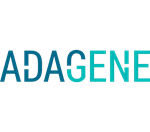- Results of dose escalation portion from phase 1b/2 trials of ADG126 in combination with anti-PD-1 therapies, including confirmed clinical responses, pave way for dose expansion in specific tumors -
- Tumor shrinkage and prolonged stable disease observed in ‘cold’ tumors such as MSS CRC -
- Robust safety profile allows repeat dosing, sustained target engagement and Treg depletion to maximize long-term clinical benefit -
Two poster presentations on ADG126 SAFEbody reported results of ongoing phase 1b/2 trials at multiple dosing regimens (6 mg/kg and 10 mg/kg) in combination with either pembrolizumab or toripalimab, as well as updated data for ADG126 monotherapy in heavily pre-treated patients.
Both posters, “Interim results of a phase 1b/2 study of ADG126 (a masked anti-CTLA-4 SAFEbody®) monotherapy and in combination with toripalimab (an anti-PD-1 antibody) in patients (pts) with advanced / metastatic solid tumors” and “Initial results of a phase 1b/2 study of ADG126 (a masked anti-CTLA-4 SAFEbody®) in combination with pembrolizumab (an anti-PD-1 antibody) in patients with advanced/metastatic solid tumors,” may be viewed on the company’s website here.
Key findings include:
- Best-in-class Safety Profile Reinforced in Combination with Anti-PD-1: In dose escalation studies of ADG126 in combination with anti-PD-1 treatments, ADG126 continues to demonstrate a best-in-class safety profile at doses from 6 mg/kg up to 10 mg/kg. The combination was well tolerated with no dose-limiting toxicities observed with repeat cycles, including in patients who received four or more cycles in the combination cohort with toripalimab.
Across 31 patients in combination dose escalation cohorts of ADG126, a total of seven (22.6%) Grade 3 TRAEs were reported, suggesting a safety profile comparable to anti-PD-1 monotherapy and a best-in-class safety profile in combination with anti-PD-1, even at much higher doses. This has been achieved without aggressive safety management for immune-mediated diarrhea/colitis, such as infliximab infusion.
- Confirmed Clinical Responses & Tumor Shrinkage in Combination with Anti-PD-1: In the heavily pre-treated patient groups, clinical responses and tumor shrinkage were observed during combination dose escalation. The posters summarize patient case studies demonstrating clinical benefit, including three confirmed partial responses and multiple cases of prolonged stable disease with tumor shrinkage in patients who received ADG126 plus anti-PD-1 therapies. Of note, two cases of significant tumor shrinkage (20% reduction and higher in target lesions) were observed in MSS CRC patients with liver metastasis who received ADG126 plus toripalimab.
- Compelling Monotherapy Safety Profile with Prolonged Stable Disease Supports ADG126 Mechanism: An additional cohort of 30 patients who received ADG126 monotherapy showed a compelling safety profile for ADG126, with no Grade 3 or higher TRAEs reported at repeat doses up to 20 mg/kg.
- Across all dose levels, the disease control rate was 37% among 27 evaluable patients.
- Prolonged stable disease was observed in five patients, with notable tumor shrinkage observed in an ovarian cancer patient who received 25 cycles at 1 mg/kg and a non-small cell lung cancer patient (NSCLC) who received 14 cycles at 20 mg/kg.
- Analysis of a clinical sample from a hepatocellular carcinoma (HCC) patient previously treated with atezolizumab and bevacizumab demonstrated Treg depletion, supporting the mechanism of action for ADG126.
- Combination Dose Expansion Ongoing in MSS CRC: Dose expansion cohorts are currently underway evaluating ADG126 in combination with anti-PD-1 therapy with an update planned later in 2023. The cohorts evaluate disease control rate, progression free survival, overall survival and objective response rate. Multiple dosing schedules are being evaluated, including ADG126 10 mg/kg every three and six weeks.
Further, the strong safety profile of ADG126 has enabled a randomized clinical trial that is being initiated in collaboration with Roche to evaluate ADG126 in combination with atezolizumab and bevacizumab as a first-line treatment for patients with advanced/metastatic HCC. The trial is being sponsored and conducted by Roche.
Solid Tumor Potential Shown for ADG153, a masked, anti-CD47 IgG1 SAFEbody
A third poster, “ADG153, a novel masked anti-CD47 IgG1 SAFEbody, demonstrates strong in vivo anti-tumor activities in preclinical solid tumor models and preferential CD47 target engagement in the tumor microenvironment,” reported preclinical data for ADG153. The data demonstrated strong in vivo anti-tumor activities in solid tumor models and a robust safety profile due to preferential CD47 target engagement in the tumor microenvironment.
The three posters are available on the company’s website at www.adagene.com/pipeline/publications in accordance with the AACR embargo policy.
About
For more information, please visit: https://investor.adagene.com. Follow
SAFEbody® is a registered trademark in
Safe Harbor Statement
This press release contains forward-looking statements, including statements regarding ADG126 and ADG153, the potential implications of clinical and preclinical findings of these product candidates, and Adagene’s advancement of, and anticipated clinical development, regulatory milestones and commercialization of

Investor & Media Contact:Ami Knoefler 650-739-9952 ir@adagene.com
Source: Adagene Inc.

